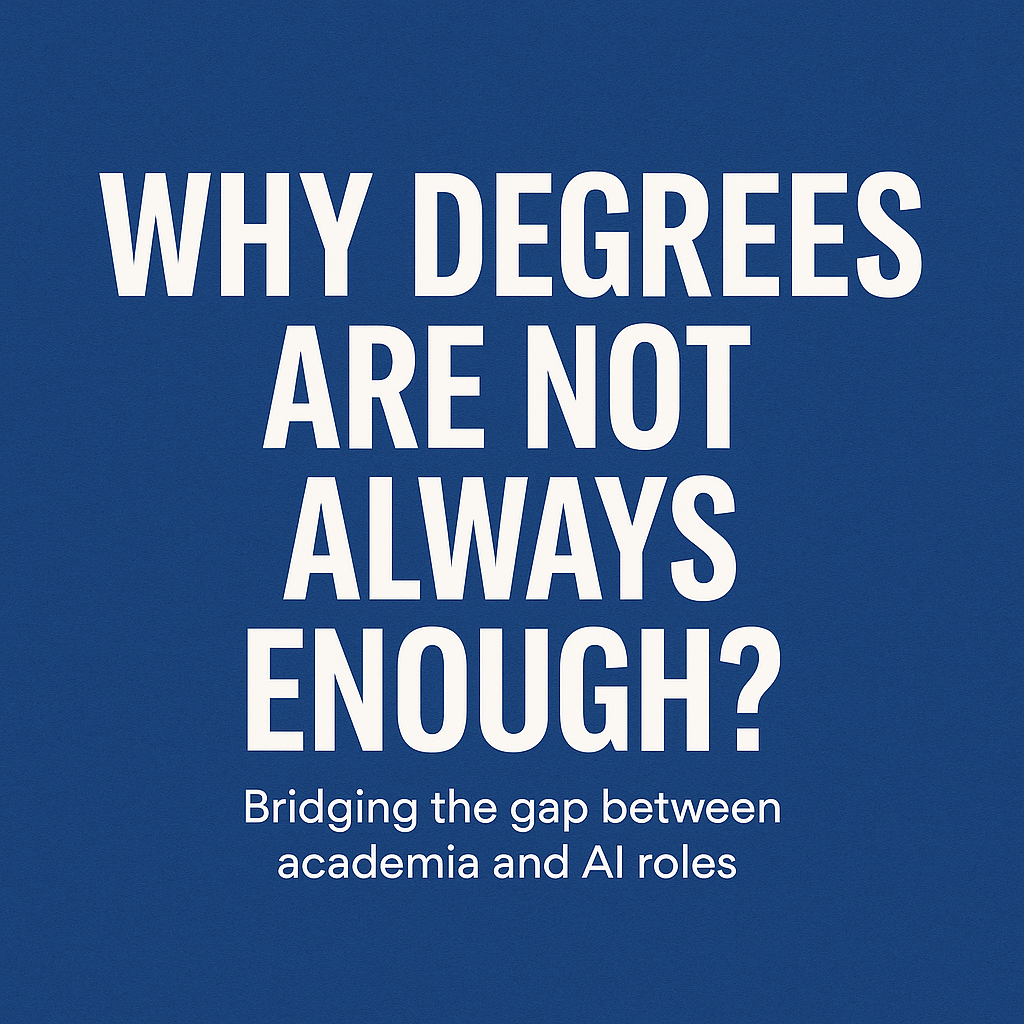A degree can open doors. But in today’s AI-driven job market, it is usually not enough to walk through them.
As artificial intelligence continues to transform industries, more professionals—especially those in mid-career—are finding themselves at a crossroads. They hold respected degrees, sometimes even advanced ones, but those credentials do not always translate into readiness for AI-related roles.
It is not a reflection of the value of higher education; rather, it is a reflection of how fast the field of AI is evolving—and how incomplete traditional academic training can be when it comes to production-scale, real-world application.
The Limits of a Degree
A university degree signals persistence, intellectual ability, and foundational knowledge. But when it comes to deploying AI responsibly, securely, and at scale, most degree programs simply are not designed with those requirements in mind.
What degrees often do not measure:
- Hands-on deployment or MLOps skills
- Experience with ethical or regulatory AI considerations
- Domain-specific AI fluency (e.g., finance, healthcare, cybersecurity)
- Project readiness for dynamic, high-stakes environments
- Demonstrated ability to work on or lead AI teams
This gap is especially visible in professionals pivoting into AI from roles in business, engineering, or IT. Despite having formal education and years of experience, they face skepticism from employers looking for proof of applied, up-to-date AI skills.
Why Certification Fills the Gap
This is where certification can make a critical difference. Not as a replacement for degrees—but as a complement and signal of real-world readiness.
Structured certification provides:
- Focused validation of current, job-relevant knowledge
- Performance-based testing beyond academic theory
- Credentialing that’s specific to role, level, and domain
- A way for employers to assess readiness without guesswork
In other words, certification answers the question that degrees often leave open:
"Can this person actually do the work today?"
The Case for Mid-Career Certification
Professionals with degrees—and even advanced degrees—are turning to certification not because they lack intelligence or education, but because they want to adapt to changing expectations.
They are using certification to:
- Pivot into new AI-related roles
- Upskill for emerging responsibilities in current roles
- Gain confidence in technical decision-making
- Bridge theory with practice
- Show hiring managers or project leads that they’re serious—and ready
These are not beginners. They are experienced professionals who want to be credible contributors in the next phase of their career.
Certification That Reflects the Real World
At BlueCert™, we designed our certification paths to reflect how AI is actually used in the field—across finance, healthcare, education, security, governance, and beyond.
We test not just model tuning, but the thinking behind it:
- How do you evaluate bias and fairness?
- Can you translate business needs into ethical AI workflows?
- Do you understand how AI interacts with data governance or risk protocols?
This level of specificity is rarely covered in a standard curriculum—but it is exactly what employers are looking for when hiring or promoting for AI roles.
Final Thought
Degrees still matter. But in a field as fast-moving and high-impact as AI, they are no longer the full story.
For professionals aiming to stay relevant—or take a bold step forward—certification can provide the structure, signal, and confidence to move ahead.
At BlueCert™, we are helping people do just that.

